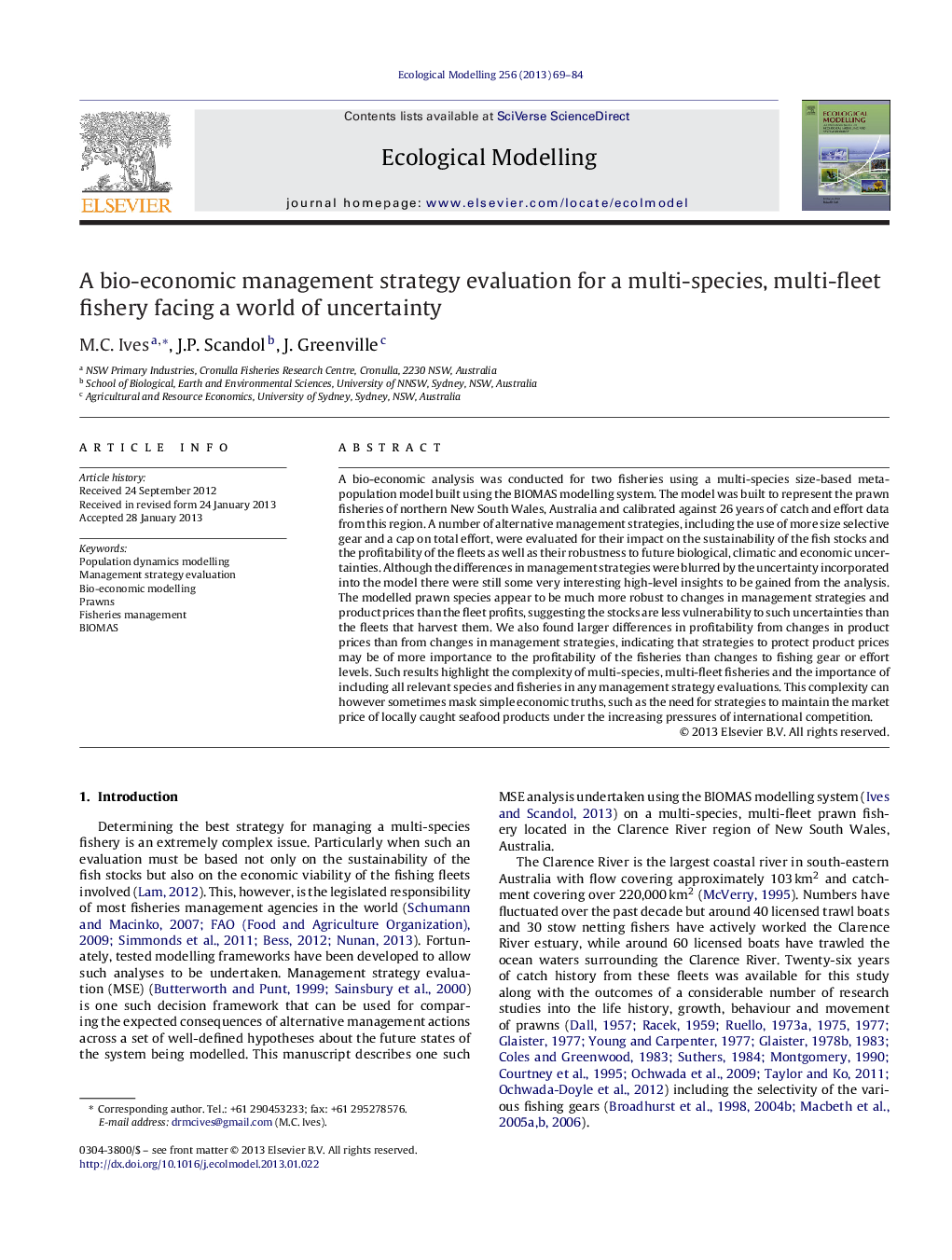| Article ID | Journal | Published Year | Pages | File Type |
|---|---|---|---|---|
| 6297237 | Ecological Modelling | 2013 | 16 Pages |
A bio-economic analysis was conducted for two fisheries using a multi-species size-based meta-population model built using the BIOMAS modelling system. The model was built to represent the prawn fisheries of northern New South Wales, Australia and calibrated against 26 years of catch and effort data from this region. A number of alternative management strategies, including the use of more size selective gear and a cap on total effort, were evaluated for their impact on the sustainability of the fish stocks and the profitability of the fleets as well as their robustness to future biological, climatic and economic uncertainties. Although the differences in management strategies were blurred by the uncertainty incorporated into the model there were still some very interesting high-level insights to be gained from the analysis. The modelled prawn species appear to be much more robust to changes in management strategies and product prices than the fleet profits, suggesting the stocks are less vulnerability to such uncertainties than the fleets that harvest them. We also found larger differences in profitability from changes in product prices than from changes in management strategies, indicating that strategies to protect product prices may be of more importance to the profitability of the fisheries than changes to fishing gear or effort levels. Such results highlight the complexity of multi-species, multi-fleet fisheries and the importance of including all relevant species and fisheries in any management strategy evaluations. This complexity can however sometimes mask simple economic truths, such as the need for strategies to maintain the market price of locally caught seafood products under the increasing pressures of international competition.
⺠We developed a bio-economic evaluation for an important multi-species, multi-fleet fishery. ⺠We tested management strategies for their robustness to uncertainty. ⺠Incorporating both model parameter uncertainty and stochasticity blurred results. ⺠Species abundance was found to be more robust to uncertainty than fleet profitability. ⺠Complexity can sometimes mask simple economic solutions such as maintaining product prices.
